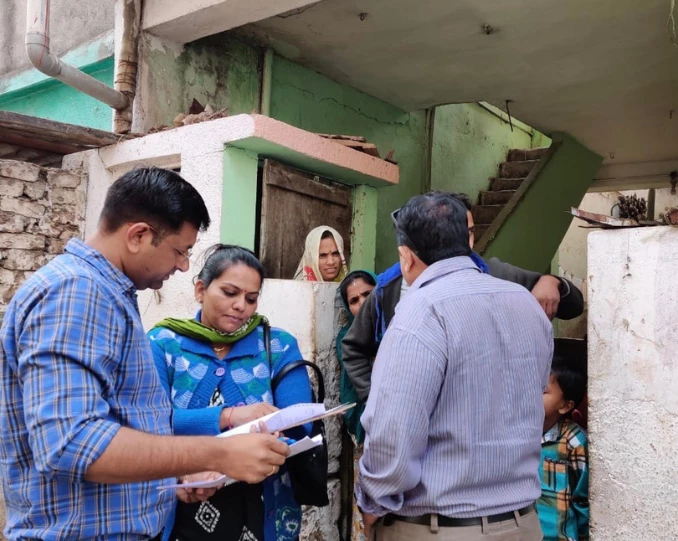Understanding risk factors
Ahmedabad, India, has released a report on a survey of NCD risk factors that the city has conducted house by house.

About the work
Supported by the Partnership—and based on the World Health Organization’s STEPwise Approach to NCD Risk Factor Surveillance (STEPS)—the survey sampled 5,760 city residents ranging from 25 to 64 years on behavioral risk factors and physical measurements. Approximately 2,500 individuals also took part in blood and urine testing.
In the report’s introduction, Ahmedabad Municipal Corporation Mayor Shri Kiritkumar Parmar wrote: “The current research project report reveals important challenges that need to be addressed. Although Government of India is addressing these issues by including NCDs in various National Health Programs, we must acknowledge the impact of widespread inequalities, group-specific risks, short falls and gender biases. Responsive actions such as early detection, management and control are needed urgently to prevent NCDs.”
The study provides key insights into a range of health areas that will help inform future efforts to tackle NCDs. Specifically, the city will focus on reducing current rates of tobacco usage—one of the leading preventable risk factors for NCDs globally. According to the survey, 34% of males and 6% of females—or 18% of the total population—are tobacco users. The findings also indicated that chewing tobacco was particularly prevalent throughout the city, favored by 86% of smokeless tobacco users.
During the COVID-19 pandemic, Ahmedabad’s efforts to prevent the spread of the virus required extra attention to the use of smokeless tobacco. Read more in the case study below.
Other key findings from the report include:
Nutrition: 66% of participants say they always or often consume processed food high in salt.
Physical activity: 19% of participants did not meet WHO recommendations on physical activity.
Combined risk factors: Overall, 52.2% of participants recorded 3-5 risk factors for NCDs.
For the full report or more information please contact cities4health@vitalstrategies.org
Tackling the dual challenge: Tobacco use and COVID-19
Case Study: Smokeless tobacco control for COVID-19 containment: Ahmedabad, India
In India, the COVID-19 pandemic is driving cities and states to implement tobacco control measures to curb virus spread. With over 200 million smokeless tobacco users in India, sub-national governments are building on momentum to strengthen tobacco control policies, reduce prevalence and avert years of illness and hundreds of thousands of preventable deaths per year. Ahmedabad—the largest city in India’s western state of Gujarat—took early action on smokeless tobacco control, recognizing the threat to COVID-19 transmission. A ban on spitting in public, the closure of stores selling chewing tobacco and other measures all follow efforts by the city in recent years to prioritize prevention of tobacco-related cancers and other noncommunicable diseases (NCDs).
Key resources on COVID-19 and tobacco control: